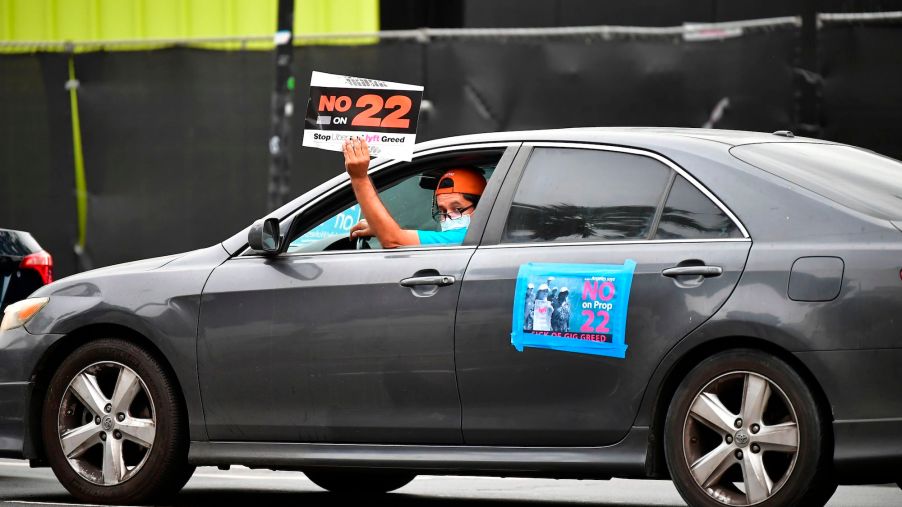
Uber and Lyft Drivers Just Suffered a Devastating Blow in California
Working a side hustle has kept food on the tables of many American households. Driving for ridesharing giants such as Uber and Lyft has been a convenient way to earn additional income.
More than 57 million people across the nation babysit, deliver food, ghostwrite, or drive for hire to make ends meet.
In California, this age-old income source is in jeopardy. Proposition 22 recently passed, and it could negatively affect millions of gig workers who rely on the extra money to get by.
The ballot proposition could harm Uber and Lyft drivers
Proposition 22 was a controversial ballot measure that passed in the November 2020 election in the Golden State. Affecting millions of gig workers, Lyft and Uber succeeded in their effort to continue classifying drivers as independent contractors, CNET reported.
The fight began in 2013 when drivers looking for better employee protection sued Uber and Lyft. The parties agreed on a settlement, which offered concessions but didn’t reclassify the drivers.
Last year, California passed AB5, a law requiring these companies to classify drivers as employees. Uber and Lyft fought back hard. They said the change could devastate their business models.
What Lyft and Uber drivers wanted
In business for only the past 10 years, Uber recorded 111 million monthly active users worldwide, Statista reported. With an $86.9 billion market value according to CNBC, the ridesharing company is worth more than General Motors and Ford combined. Lyft, whose market value is $12.7 billion, debuted in 2012 and had 12.513 million active users in the third quarter of 2020. An estimated 2 million app-based drivers are the backbone of these ridesharing giants.
Proposition 22 allows companies such as Uber and Lyft to classify employees as independent contractors. Drivers for these companies opposed the ballot measure because they wanted to be considered employees of these massive corporations.
An independent contractor is entitled to wages but doesn’t get employee benefits such as health and life insurance, paid time off, and overtime pay. These workers don’t have legal protection from sexual harassment and discrimination. They also have no collective bargaining rights to allow them to fight for better wages and working conditions.
For the most part, Uber and Lyft drivers wanted employee benefits and $13 an hour, California’s minimum wage. According to a UC Berkeley Labor Center study, the drivers are guaranteed only $5.64 per hour under Proposition 22. They get paid for drive time but receive no income for idle periods of waiting for the next customer.
The ridesharing companies spent a lot of money
Corporations such as Uber, Lyft, Instacart, Postmates, and DoorDash spent more than $200 million on a campaign to encourage voters to select yes on Proposition 22. The companies bombarded California with advertisements, emails, and text messages to support their initiative.
These companies fought hard to avoid having to pay expensive benefits that could destroy their bottom lines. “By not paying into unemployment insurance, for example, Uber and Lyft have saved a combined $413 million since 2014,” LA Progressive reported. They weren’t willing to lose these savings and fought hard to get their way.
The campaign proved successful and cruised to an easy victory, with 58% of voters approving the controversial proposition. Backed by corporate power, it’s the most expensive ballot measure presented in the United States.
A huge win for Uber and Lyft, the passage of Prop 22 means companies aren’t obligated to pay for the cost of workers’ rights and protections. Drivers will remain classified as independent contractors.
The measure “is likely to have global implications as countries and cities around the world wrestle with the employment status of gig economy workers,” CNET reported.


